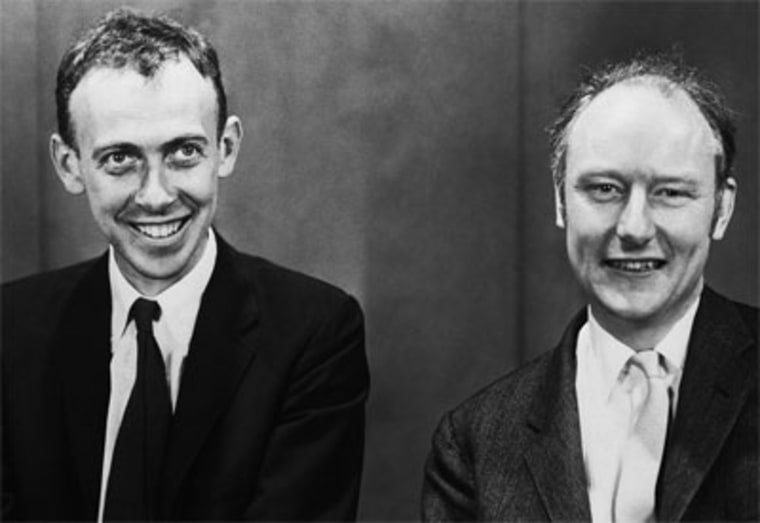In the 1970s, U.S. Secretary of State Henry Kissinger asked Chinese Premier Zhou Enlai his opinion on the chief consequences of the French Revolution. "It's too early to tell," Zhou is said to have replied.
The comment captures the essential problem of determining which historical moments really matter. None of us can see what directions the world will take in the future, and events that seem monumental today might turn out to be mere pebbles on the road of history.
Take inventor Dean Kamen's gyroscopic Segway scooter. Just a few years ago, it was heralded as the answer to the world's transportation woes, a device that would lead to a redesign of entire cities. It flopped. Conversely, 2,000 years ago few could have predicted the success of a small religious group following the teachings of a Nazarean carpenter. Today Christianity is the biggest religion in the world.
But there are some achievements so notable, so ground-shaking, that even within the short space of a few decades we can feel their impact. We've chosen a few examples of this revolutionary spirit: 15 people who changed the world since 1950.
Of course, not everyone changes the world for the better. Clearly, we could do with fewer Osama bin Ladens and more Mikhail Gorbachevs, who, when given great power, directed it toward goals that benefited mankind. Our list is made up exclusively of the latter.
In any case, when it comes to accomplishments that truly alter the way we live day today, political figures prove to be less influential than scientists.
Creators of technology — ideas in physical form — dominate our list. Take Paul Lauterbur and Peter Mansfield's invention, magnetic resonance imaging, which has transformed almost every area of surgery, allowing doctors to see inside a patient's body without cutting it open first.
"MRI has totally changed neurosurgery," says Nirit Weiss, assistant professor of neurosurgery at Mount Sinai School of Medicine in New York. "If you open the skull and look at the brain, it looks like a blob — you can't just look at it and see the different cell groups. But MRI has allowed us to visualize the brain's structures so we have a map in our head of where to go and where to avoid."
Sometimes the most influential breakthroughs don't require incredible advances in science and take years to be appreciated. Equipping the trailer of a truck with a large, standardized, removable box required nothing more than a stroke of imaginative brilliance. And yet the current global economy is unimaginable without it.
American entrepreneur Malcolm McLean invented the shipping container in 1956, but it took a decade for its stunning effectiveness to be revealed as it went to use supplying the military during the Vietnam War. Containerized shipping is still growing — by 11% a year — which is something that McLean, who began his business in North Carolina in 1934, using a single truck he bought for $120, would surely marvel at if alive today.
Some revolutionaries were slighted by the scientific establishments of their time — like Rosalind Franklin's exclusion from sharing in the Nobel Prize for the discovery of the structure of DNA. Described by her peers as a "genius," she exposed herself to massive amounts of radiation to try to get the best possible X-ray photograph of a strand of DNA, dying of cancer at 37. Her image of a double helix provided the crucial evidence James Watson and Francis Crick needed to complete their model, but neither scientist acknowledged her work when they received the Nobel Prize in 1962.
The history of influence is the history of imagination, passion, hard work and belief. These 15 people who have changed the world show what belief can accomplish.
